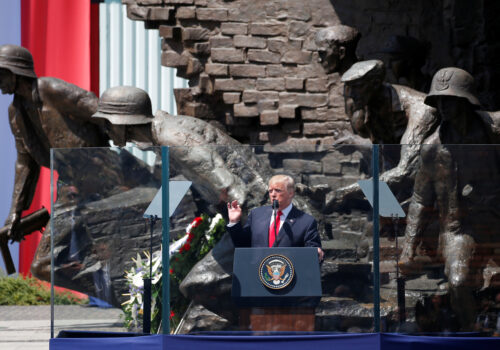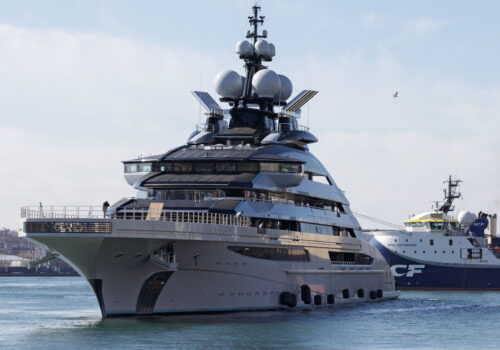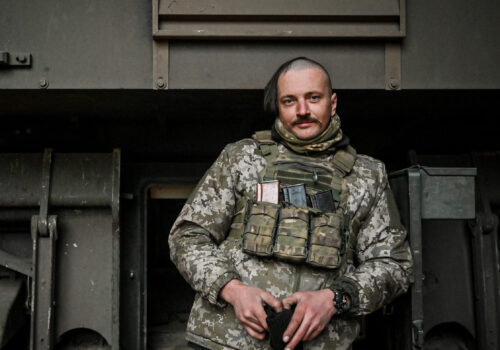Following Russia’s withdrawal from Kherson and ahead of the coming winter, Moscow has shifted and redoubled its war tactics in Ukraine to target civilian energy infrastructure. Using artillery, missiles, and drones to conduct precision strikes on energy facilities, Moscow hopes to leave more than 10 million Ukrainians without power or heat as temperatures in the region fall below freezing. Almost half of the country’s energy grid has been disabled or is experiencing blackouts, underscoring the crucial need for Ukraine’s Western allies to provide much-needed equipment for quick system repair and maintenance.
How can the United States and Europe best help return Ukrainian energy to normalcy? What equipment does Ukraine need the most? What effects will the energy crisis have on the war?
Melinda Haring, deputy director of the Atlantic Council’s Eurasia Center, moderates a conversation featuring Oleksandra Azarkhina, deputy minister of infrastructure of Ukraine, Volodymyr Kudrytskyi, chief executive officer of national grid operator Ukrenergo, Oksana Nechyporenko, director of the Ukraine Crisis Coordination Center and former chief of staff to Prime Minister of Ukraine Oleksiy Honcharuk, and Lana Zerkal, former deputy minister of foreign affairs of Ukraine.
This event will not feature an in-person audience. You will be able to join via desktop or mobile app, through your web browser, or by phone. To join the question and answer period, you must join by app or web.
Register below for details on joining the virtual audience.
Follow us on social media
and support our work
issue spotlight

Europe in crisis
War in Ukraine
Experts from across the Atlantic Council are assessing the consequences of Russia’s February 2022 invasion, including what it means for Ukraine’s sovereignty, Europe’s security, and the United States’ leadership.

The Eurasia Center’s mission is to promote policies that strengthen stability, democratic values, and prosperity in Eurasia, from Eastern Europe in the West to the Caucasus, Russia, and Central Asia in the East.


